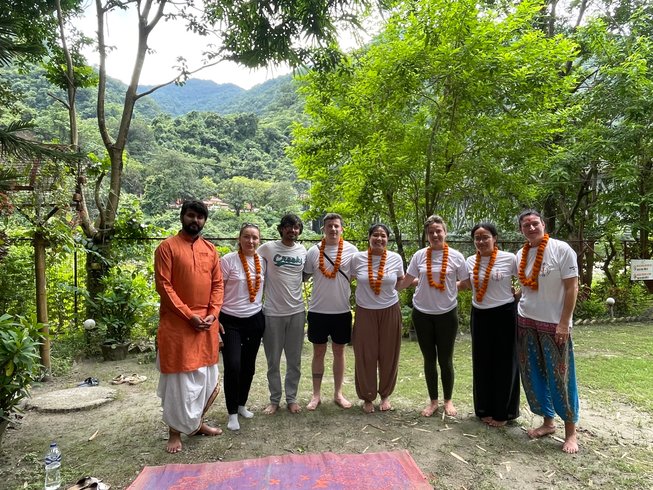
How Do Philosophical Beliefs Shape Family Structures in Uttar Pradesh?
- admin
- November 12, 2025
- Opinion & Analysis, People
- 0 Comments
Examining the Nexus of Tradition, Modernity, and Cultural Philosophy
Uttar Pradesh (UP), a vibrant microcosm of India’s cultural and philosophical diversity, offers a compelling case study on the interplay between traditional beliefs and evolving family structures. Rooted in dharmic philosophies and shaped by socio-economic transformations, family units in UP negotiate a delicate balance between continuity and change. The enduring prevalence of joint families, the rise of nuclear households, and the shifting roles of women underscore the state’s dynamic adaptation to philosophical heritage and modern demands.
Key Analytical Insights
- Demographic Complexity: With a population exceeding 240 million, UP epitomizes a spectrum of rural and urban lifestyles, each deeply influenced by traditional values.
- Philosophical Foundations: Core dharmic principles—dharma (duty), karma (action), and sanskar (values)—continue to shape familial roles and social norms.
- Modern Shifts: Urbanization, economic diversification, and expanding educational access are redefining family dynamics, particularly in urban centers such as Lucknow and Kanpur.
Traditional Philosophies and Their Influence on Family Dynamics
- Dharma and Generational Hierarchy:
- The philosophy of dharma underpins intergenerational roles, conferring authority on elders in traditional joint family systems.
- Impact: While this fosters collective accountability, it often limits individual agency, particularly among women and younger members.
- Karma and Familial Interdependence:
- Families are perceived as interconnected units where individual actions contribute to collective well-being.
- Manifestations: This philosophy is evident in shared rituals, collaborative decision-making, and mutual support systems, particularly in rural households.
- Sanskar and Socialization:
- The transmission of values through daily practices, festivals, and rituals reinforces familial bonds and societal coherence.
- Examples: Celebrations such as Raksha Bandhan and Diwali act as cultural touchstones, affirming familial unity and shared obligations.
Evolving Family Structures: The Dynamics of Continuity and Transformation
- Urbanization and the Shift to Nuclear Families:
- Economic migration and professional aspirations are catalyzing a transition from joint to nuclear family setups.
- Impact: While nuclear families offer independence, they challenge traditional support systems, particularly regarding elder care.
- Women’s Expanding Roles:
- Enhanced access to education and workforce participation is redefining women’s roles, shifting them from caregivers to co-decision-makers.
- Challenges: Balancing career ambitions with traditional expectations creates tensions, especially in conservative environments.
- Youth and Individual Autonomy:
- Exposure to global cultural trends is encouraging younger generations to prioritize personal goals over collective familial responsibilities.
- Cultural Tensions: Generational conflicts arise as older family members perceive a dilution of traditional values and norms.
Case Studies: Philosophy in Practice Across Contexts
- Rural Joint Families:
- In Bundelkhand, joint families remain integral to agricultural livelihoods, emphasizing collective labor and resource pooling.
- Urban Nuclear Families:
- In metropolitan centers like Kanpur, nuclear families are redefining parenting and work-life balance, reflecting shifting socio-economic priorities.
- Women-Led Households:
- In Purvanchal, male out-migration for work has led to an increase in women-led households, disrupting traditional gender dynamics and fostering resilience.
Strategies for Harmonizing Tradition and Modernity
- Foster Participatory Family Models:
- Encourage inclusive decision-making structures that balance respect for traditional roles with contemporary aspirations for autonomy.
- Strengthen Women’s Empowerment:
- Expand educational and employment opportunities while developing frameworks that enable women to balance professional and familial roles.
- Promote Intergenerational Dialogue:
- Facilitate open communication platforms to bridge generational divides and ensure the continuity of shared values.
- Reinterpret Traditions for Contemporary Relevance:
- Adapt rituals and practices to align with modern lifestyles while preserving their philosophical essence.
Conclusion: Navigating the Intersections of Heritage and Progress
Family structures in Uttar Pradesh are deeply influenced by philosophical principles that prioritize duty, interdependence, and cultural continuity. However, as the state undergoes rapid urbanization, economic evolution, and global cultural exposure, families face the challenge of integrating these changes while maintaining their foundational ethos. By fostering inclusivity, adaptability, and open dialogue, UP can navigate this transformation effectively, preserving its rich heritage while embracing the demands of modernity.




